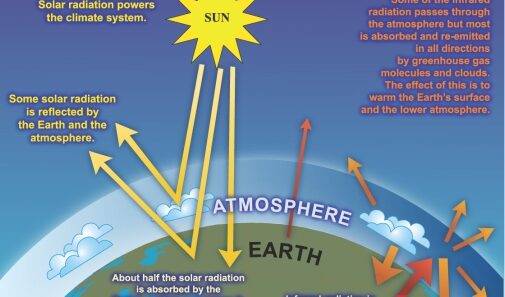The climate crisis continues to be an ever-pressing issue, compounded by the daunting realization that individual actions contribute collectively to global warming. In the multifaceted narrative of climate change, each person’s individual contribution—no matter how seemingly insignificant—can culminate in a substantial impact. Thus, understanding “The Human Equation” becomes paramount as we navigate through the complexities associated with our warming world.
To comprehend the human equation in climate change, it is essential to dissect the myriad of factors that exacerbate our planet’s plight. From fossil fuel consumption to deforestation, each action reverberates through the intricate web of ecological systems. The anthropogenic activities that predominantly emit greenhouse gases are inextricably linked to everyday choices regarding energy consumption, transportation, and even dietary preferences.
Every day, billions of individuals embark upon routines that often perpetuate environmental degradation. The average household in the United States produces approximately 7,000 kilowatt-hours of electricity annually. A considerable portion of this energy is derived from fossil fuels, leading directly to an escalation in carbon dioxide levels in the atmosphere. Consequently, it becomes essential to evaluate personal electricity consumption. Simple measures—including switching to energy-efficient appliances, utilizing smart thermostats, and maximizing natural light—can drastically alleviate one’s carbon footprint.
Transportation further compounds this conundrum. The prevalence of automobiles dominates urban landscapes, with every vehicle contributing to greenhouse gas emissions. The irony lies in the convenience of modern transportation juxtaposed with its environmental ramifications. By opting for public transit, carpooling, cycling, or walking, individuals can astutely reduce vehicular emissions. Furthermore, the burgeoning adoption of electric vehicles serves as a crucial pivot towards more sustainable modes of travel. This paradigm shift not only fosters innovation but also propels societal commitment toward cleaner energy sources.
Dietary choices, too, signify profound implications for climate change. The livestock industry is one of the most significant contributors to greenhouse gas emissions, accounting for an approximate 14.5% of all emissions globally. This undeniable reality calls for a transformative approach to consumption. A shift toward plant-based diets can substantially mitigate the environmental burden. Incorporating more sustainable food sources, such as locally grown produce, can also minimize the carbon footprint associated with long-distance food transport.
The concept of carbon offsets has emerged as another key player in the realm of individual accountability. By purchasing carbon credits, individuals can support renewable energy projects, reforestation endeavors, and sustainable agriculture initiatives that collectively counterbalance emitted carbon. Such an action not only fosters a proactive perspective but also encapsulates a commitment to planetary stewardship.
Moreover, fostering awareness and education around climate change is indispensable. Initial personal contributions may seem minute, but when multiplied across millions, the effects are profound. Engaging in community discussions, attending workshops, and sharing knowledge amplify collective understanding of climate-related issues. By igniting curiosity and enthusiasm, individuals can catalyze transformative societal shifts that resonate far beyond their immediate circles.
As digital technology permeates daily life, it can serve as a formidable ally in combating climate change. Various applications and platforms now offer metrics that track personal carbon footprints, providing insights into individual habits and their environmental impacts. By utilizing these resources, individuals can make informed decisions, monitor progress, and ultimately adjust habits in real-time.
Nevertheless, it is vital to recognize the systemic nature of climate change. While personal responsibility is crucial, it must coexist with broader institutional reforms. Advocating for sustainable policies—such as increased subsidies for renewable energy or stricter regulations on waste disposal—demonstrates how collective action at civic levels influences national and global environmental agendas. Creating a symbiotic relationship between personal actions and policy shifts magnifies the potential for substantial change.
Transitioning to a more sustainable world requires an interdisciplinary approach. Collaboration among scientists, policymakers, businesses, and communities fosters a holistic understanding of climate change. By leveraging diverse perspectives and expertise, innovative solutions can emerge that address the multifarious challenges posed by global warming. Furthermore, promoting interdisciplinary education in schools cultivates an ethos of environmental consciousness among future generations, ensuring the longevity of climate activism.
Critically, the act of sharing stories and experiences related to climate action cannot be understated. Personal narratives surrounding successes and setbacks in adopting sustainable practices resonate deeply. They humanize the often abstract dynamics of climate change, allowing others to relate to individual struggles and triumphs. Additionally, these stories can inspire action, ultimately creating an emotional connection that can drive change.
The alarming reality of climate change necessitates a fundamental shift in perspective. It begs us to rethink our relationship with the environment and our role within it. Recognizing that our individual actions are components of a much larger puzzle can incite a sense of agency and determination towards combating climate change. When combined, our fragmented efforts can forge a unified movement toward sustainability, fostering a more equitable and habitable world.
As individuals grapple with the implications of their choices, it becomes evident that understanding “The Human Equation” is not just an academic pursuit—it is an essential call to action. A warming world may appear daunting, yet with each individual’s contribution, there lies boundless potential for meaningful change. Harnessing this energy collectively, we can endeavor towards a resilient future, transforming personal accountability into a formidable force against climate change.






